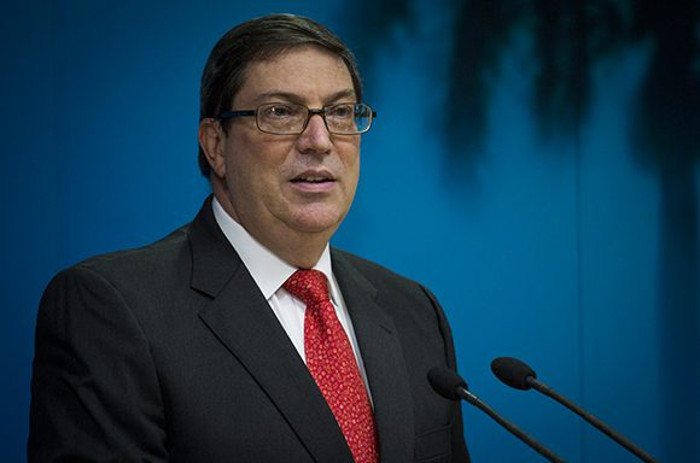 Bruno Rodriguez Parrilla, Cuban Foreign Minister, denounced today the effects of the U.S. economic, commercial and financial blockade on his country, including barriers to the purchase of medicines.
Bruno Rodriguez Parrilla, Cuban Foreign Minister, denounced today the effects of the U.S. economic, commercial and financial blockade on his country, including barriers to the purchase of medicines.
The alleged freedom of the United States to allow Cuba to buy medicines there is a falsehood, and also that the island can buy from subsidiaries of U.S. companies in third countries, Rodriguez Parrilla said on Twitter.
In a series of messages, Cuban diplomat explained that the Trade Sanctions Reform and Export Enhancement Act (TSRA) from 2000 was drafted to make any transaction virtually impossible.
For example, he wrote, a specific license is required from the Bureau of Industry and Security of the Department of Commerce, with extremely rigorous procedures, which almost absolutely discourage suppliers.
The regulatory agency that issues the license requires the guarantee of being able to have proof, with inspection, of the destination of what is exported and ensuring, among other requirements, that it is not used for the biotechnological industry, said the Cuban high official.
In order to comply with the above, the President of the United States can request the inspection of exports in situ, to verify the purposes for which they were conceived, he added, describing this claim as absurd and inapplicable.
The foreign minister also commented that due to Cuba’s designation as a country sponsoring terrorism by the U.S. State Department, the term of the license is one year, and almost no one is willing to request a permit to sell or trade for that short period.
“Vessels involved in the transport of authorized medicines or medical supplies may enter U.S. ports, as long as they have not transported unlicensed cargo or persons to or from Cuba and as long as they are not transporting unauthorized goods,” Rodriguez Parrilla stressed.
Even if Cuba is willing to acquire medicines or medical supplies in the closest market geographically, he added, it is difficult, almost impossible, for a U.S. national to be willing to submit to all those conditions to sell to the Caribbean island.
Since 1992, Cuba has submitted to the United Nations General Assembly a resolution demanding the cessation of this unilateral policy applied for more than 60 years and which currently impacts Cuban families inside and outside the country as never before.